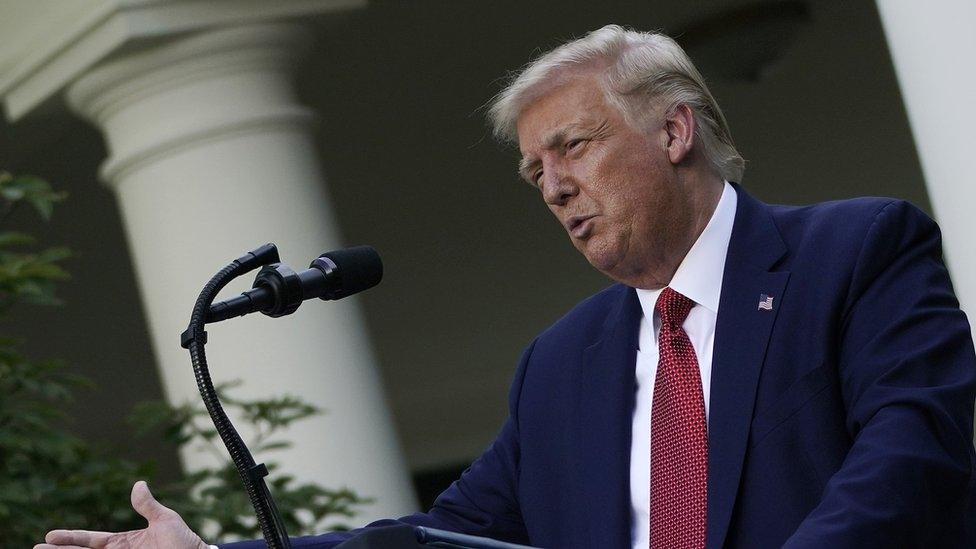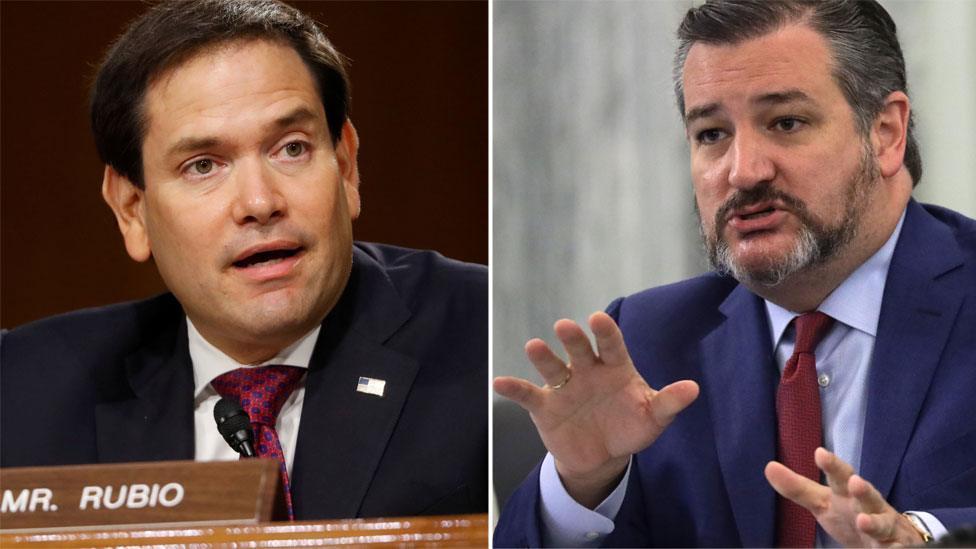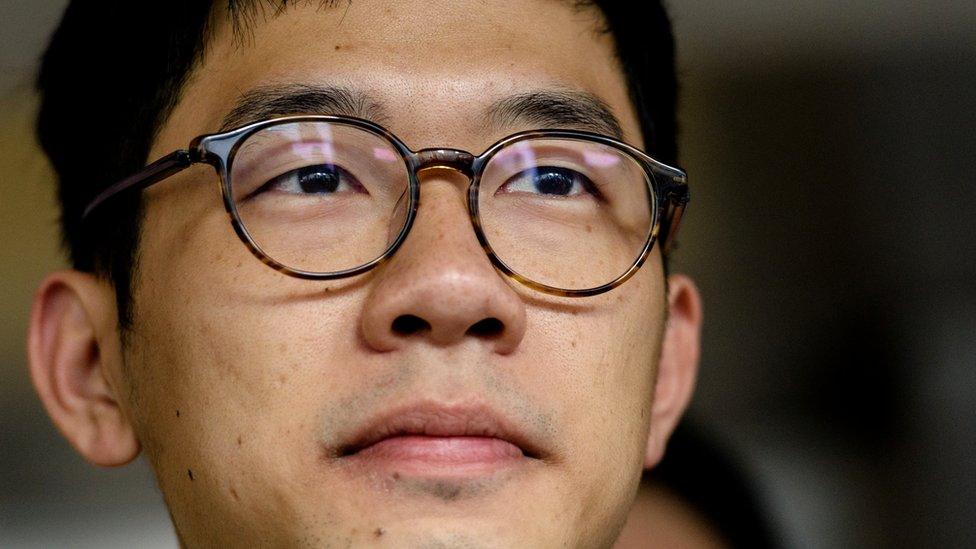Hong Kong: China vows to retaliate after Trump ends special economic status
- Published
"Their freedom has been taken away"
China has vowed to retaliate after the US ended Hong Kong's preferential trade status and imposed sanctions on officials who crack down on rights.
President Donald Trump said he was acting because China had taken away Hong Kong's freedom after it imposed a new security law.
Beijing condemned Mr Trump's decision, saying it would impose sanctions on relevant people and entities in the US.
US-China ties have become increasingly strained over a wide range of issues.
Apart from Beijing's actions in Hong Kong, Mr Trump has criticised China over its handling of the coronavirus pandemic as well as its military build-up in the South China Sea, its treatment of Muslim minorities and massive trade surpluses.
Mr Trump's decision means the end of Hong Kong's special trade status with the US, agreed in 1984 when the territory was still a British colony. Hong Kong is expected to be treated the same as mainland China, meaning its goods could be subjected to additional tariffs.
The controversial security law - which effectively outlaws criticism of China's government - is the most sweeping change to the political landscape of Hong Kong since the UK handed back sovereignty to Beijing in 1997.
Mr Trump also said he had signed the Hong Kong Autonomy Act, which passed unanimously in Congress earlier this month and penalises banks doing business with Chinese officials who implement the security law.
Tea, drugs and war: Hong Kong's British history explained
In a strongly worded statement, China's foreign ministry described the decision as a "gross interference" in its domestic affairs and said the country would impose retaliatory sanctions to "safeguard China's legitimate interests".
"The US attempt to obstruct the implementation of the national security law for Hong Kong will never succeed," the statement said.
"We urge the US side to correct its mistakes, refrain from implementing the act and stop interfering in China's internal affairs in any way. China will firmly respond if the US goes ahead."
What did President Trump say?
Speaking in the Rose Garden on Tuesday, Mr Trump said the executive order was intended to "hold China accountable for its aggressive actions against the people" of Hong Kong.
"No special privileges [for Hong Kong], no special economic treatment and no export of sensitive technologies," said the president, who first announced in May that his administration would begin paring back the territory's special status.
According to a document released by the White House, external, any dealings in US property by anyone determined to be responsible for or complicit in "actions or policies that undermine democratic processes or institutions in Hong Kong" would be blocked.
It also directs officials to "revoke license exceptions for exports to Hong Kong," and includes revoking special treatment for Hong Kong passport holders.
Mr Trump said the Hong Kong Autonomy Act gave the administration "powerful new tools to hold responsible the individuals and the entities involved in extinguishing Hong Kong's freedom".
After being questioned by a journalist, the president said he had no plans to speak to Chinese President Xi Jinping.
Mr Trump also said his administration held China "fully responsible for concealing the [coronavirus] and unleashing it upon the world". His own response to the pandemic has been under scrutiny, as the US has 3.4 million recorded cases, the highest in the world, and more than 136,000 deaths.
The president's policy address digressed into a lengthy political attack on his Democratic presidential challenger, Joe Biden, ranging from trade and immigration to policing and climate change.

Hong Kong's new security law
THE US MOVE: Should US firms be worried about Hong Kong sanctions?
RISING TENSIONS: The Hong Kong crisis and the new world order
THE NEW LAW: What it is and why Hong Kong is worried
WHAT COULD HAPPEN: Life sentences for breaking the law and more
ALSO IN THE REGION: What might happen next in the South China Sea?

Perception is reality

It was not a matter of if, but when. Scrapping Hong Kong's special status will mean companies based there will now have to evaluate what this means for them.
Hong Kong is a re-exporting hub, which means that goods that go through Hong Kong to the US but have come from somewhere else - like China for instance - have avoided the tariffs the US has slapped on China.
Now that Hong Kong's special status is gone - mainland Chinese companies may look for another place to send their goods - which would see Hong Kong's port and logistics businesses suffer.
And how much of an impact will this have on American and multinational companies using Hong Kong as a regional hub? Well, as one business consultant told me - the structural reasons for why a company would use Hong Kong as a hub are still there - low tax rates, good geographic location, convertibility of currency.
But perception is reality - and if the perception is that doing business in Hong Kong has become so much more onerous - why not decamp to mainland China or Singapore instead?

What is going on with US-China relations?
With Mr Trump facing an uphill battle for re-election this November, he and Mr Biden have accused each other of being weak on China.
On Monday, the administration condemned China's military build-up in the South China Sea, accusing it of bullying neighbours.
Last Friday, Mr Trump told reporters on Air Force One that a "phase two" trade deal with China was in doubt because of its handling of coronavirus, which he called the "plague".
Many Hong Kong residents are worried the new security law means the "one country, two systems" principle no longer exists
The US also officially withdrew last week from the World Health Organization, which Mr Trump had accused of being beholden to China.
Last week, too, the Trump administration announced sanctions against Chinese politicians who it says are responsible for human rights violations against Muslim minorities in Xinjiang.
- Published15 July 2020

- Published13 July 2020

- Published13 July 2020
